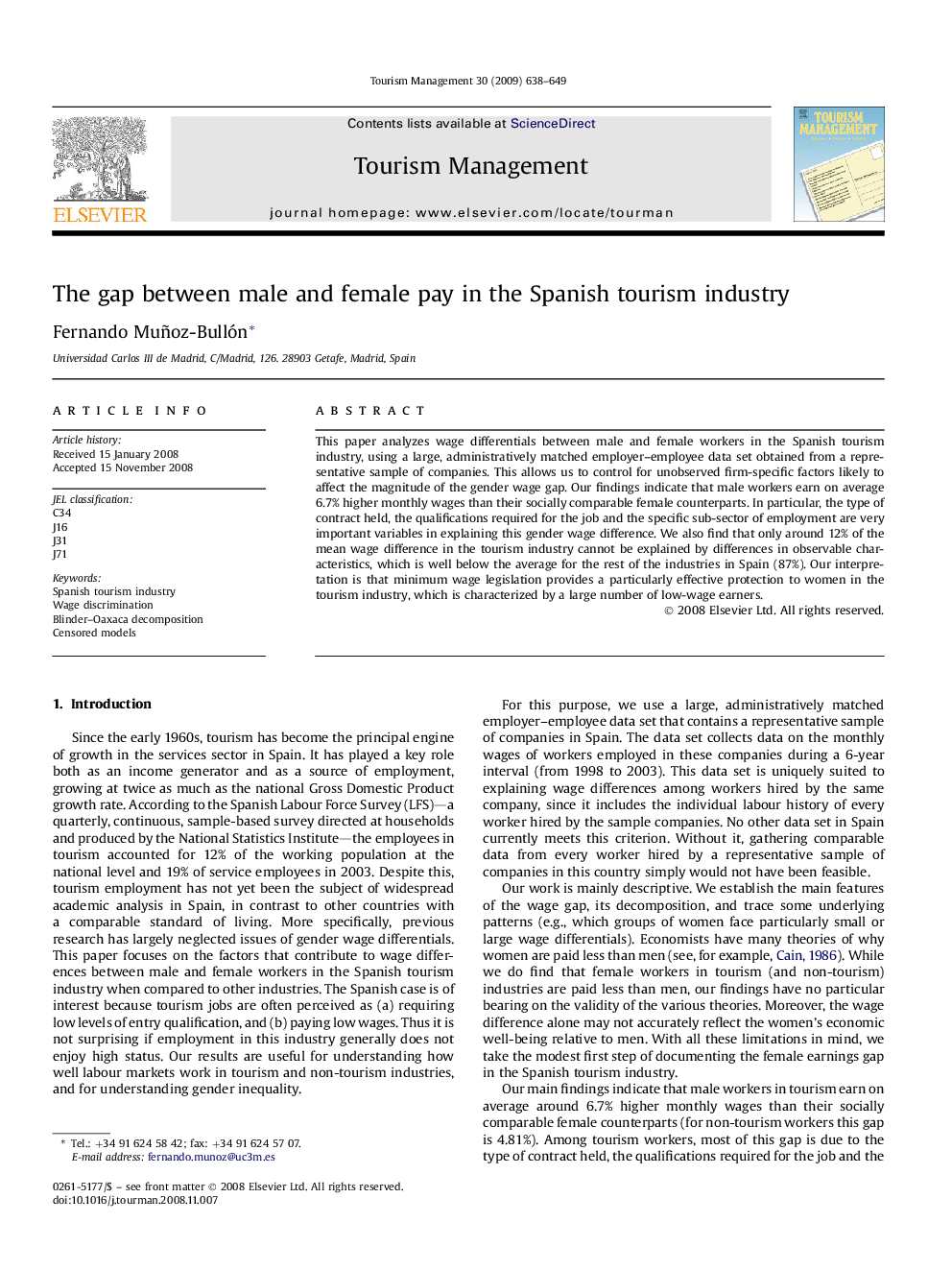| Article ID | Journal | Published Year | Pages | File Type |
|---|---|---|---|---|
| 1012883 | Tourism Management | 2009 | 12 Pages |
This paper analyzes wage differentials between male and female workers in the Spanish tourism industry, using a large, administratively matched employer–employee data set obtained from a representative sample of companies. This allows us to control for unobserved firm-specific factors likely to affect the magnitude of the gender wage gap. Our findings indicate that male workers earn on average 6.7% higher monthly wages than their socially comparable female counterparts. In particular, the type of contract held, the qualifications required for the job and the specific sub-sector of employment are very important variables in explaining this gender wage difference. We also find that only around 12% of the mean wage difference in the tourism industry cannot be explained by differences in observable characteristics, which is well below the average for the rest of the industries in Spain (87%). Our interpretation is that minimum wage legislation provides a particularly effective protection to women in the tourism industry, which is characterized by a large number of low-wage earners.
